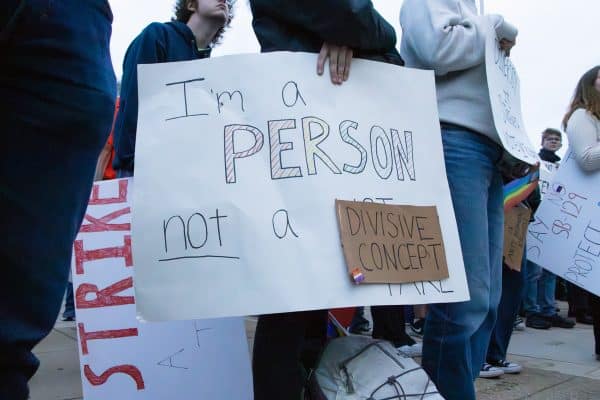Brexit: The inevitable circus
February 5, 2020
Traditional structures that compose the British political system have seen radical change during periods of crisis. Unsteadiness and undulation in the government occurs at times of social stress. For our purposes, crisis and social stress will be used synonymously. A.H. Barton in Communities in Disaster provides a useful definition of what we might view as socially stressful: A situation in which “many members of a social system fail to receive expected conditions of life from the system.” This definition quite succinctly summarizes what British perceptions are at moments of crisis.
World War II itself is certainly the most dismal crisis the United Kingdom has faced in the 20th or 21st century. However, following the war, a seismic shift in the British political consciousness occurred, a change orchestrated by Labour Prime Minister Clement Attlee. It was under Attlee that the country saw the inception of the National Health Service (NHS), the creation of a national insurance scheme and the exodus of British hegemony from several colonized territories.
Fast forward nearly 30 years and we arrive at the Winter of Discontent. A crisis surmised not by tank fire and descending Nazi death machines, but piled up rubbish at the hands of the proletariat. As political scientist Colin Hay notes, whether or not we view this period as a crisis is unimportant, more relevant is that a lasting narrative was created around the Winter of Discontent. A narrative in which trade unions took the country hostage by demanding higher wages. Where there is a villain, there must surely be a hero. In this case, the British public turned its eyes to Prime Minister Margaret Thatcher. What followed was the mass denationalization of the state. In essence, privatizing whatever public services bloated the political system.
It is in the area of restructuring that Brexit and Thatcher’s campaign to privatize are similar. Tories, under Thatcher and Brexiteers after her, argue that the state is too massive and divided in its interests. Nigel Farage and Prime Minister Boris Johnson volunteer claims that EU bureaucracy is incapable of truly understanding the needs of the average British person, and in turn, impedes on citizen freedoms. This is perhaps best elucidated by Johnson’s claim that the EU requires British fishers to keep kippers refrigerated with ice pillows. However, the main similarity of each political project is that they are perceived as more radical than reality. Even before Thatcher’s ascent to power, the Labour government had begun to realize that the state was too large. In 1975, former Chancellor of the Exchequer Denis Healey attempted to reduce the growth rate for public expenditures. After providing a loan to the UK during the 1970’s oil crisis, the International Monetary Fund required a structural adjustment program; in essence, telling the government to shrink. It is in this way that I compare British privatization to a child doing their chores after being told to do so. We wouldn’t then look at this child and claim that they have taken a novel and quite radical departure from previous guidance. By the time Thatcher was approaching power in the general election of 1979, Labour Prime Minister James Callaghan had resigned to the need for public spending reductions.
It is this history of crisis that Brexit follows. In the early days of the Great Recession, financial experts told UK consumers that the economy was strong enough to remain resilient against a US crash. They were wrong. Subsequently, the world should have expected an irredentist movement sprouting from the middle chambers of England — one which attempted to reclaim independence from the financial storms of other nations. Although the public got a movement that claimed to take back control, they didn’t get one that could uncouple the financial fates of the UK with other nations. Namely, because this is nearly impossible in the modern economy. Instead, we got a movement that claims to take back control in the next closest way: sovereignty from the EU.
In Brexit, the world watches a rebellion against a neoliberalism that can’t be killed. As Stuart Hall describes, the neoliberalist economy is characterized by “low tax regimes, limited state interference, and unimpeded access to markets and vital resources.” Dually, Hall identifies that this philosophy demands “internal security, the capacity to contain external enemies, and strong rulers in control of their populations.” Hall’s neoliberalist description defines a “common sense” view of Europe that grew in dominance during the paradigm shift of Thatcher’s government. However, this has never been a cup of tea for highly Eurosceptic onlookers like Nigel Farage. He has been known for lambasting this world view, saying, “We shouldn’t measure everything in terms of GDP figures or economics. There is something called quality of life.” For members of the Brexit Party, UKIP and various conservatives, a British way of life has been lost through the neoliberalist mindset. In their view, the government has exchanged a British identity for neoliberalist prosperity. This argument is perhaps most succinctly articulated by Farage when he notes capitalism as he knows it has been replaced by multinational corporatism.
For clarification, I am not arguing that Brexit is a positive or negative restructuring of the British state. This fact still remains unclear. Rather, I’m arguing that one should not be an onlooker of Brexit and view it as an aberrant moment in British political history. Instead, it should be viewed as an inevitable moment.
I cannot predict what this rebellion against neoliberalism will lead to, but I maintain that we are not witnessing an economic or political paradigm shift in the UK government. Before making such a claim, one would have to be clear on what the UK is shifting toward. Realistically, the idea of a closed-market-economy is scarier than life without the EU. Johnson’s Brexit deal is even further evidence of falling back into old neoliberalist habits. The current deal makes provisions for Northern Ireland to have an easy access customs border. For now, we are stuck in a neoliberalist wasteland, no matter how much Brexiteers want out. To their dismay, all they can do is try to shrink the government once again.











